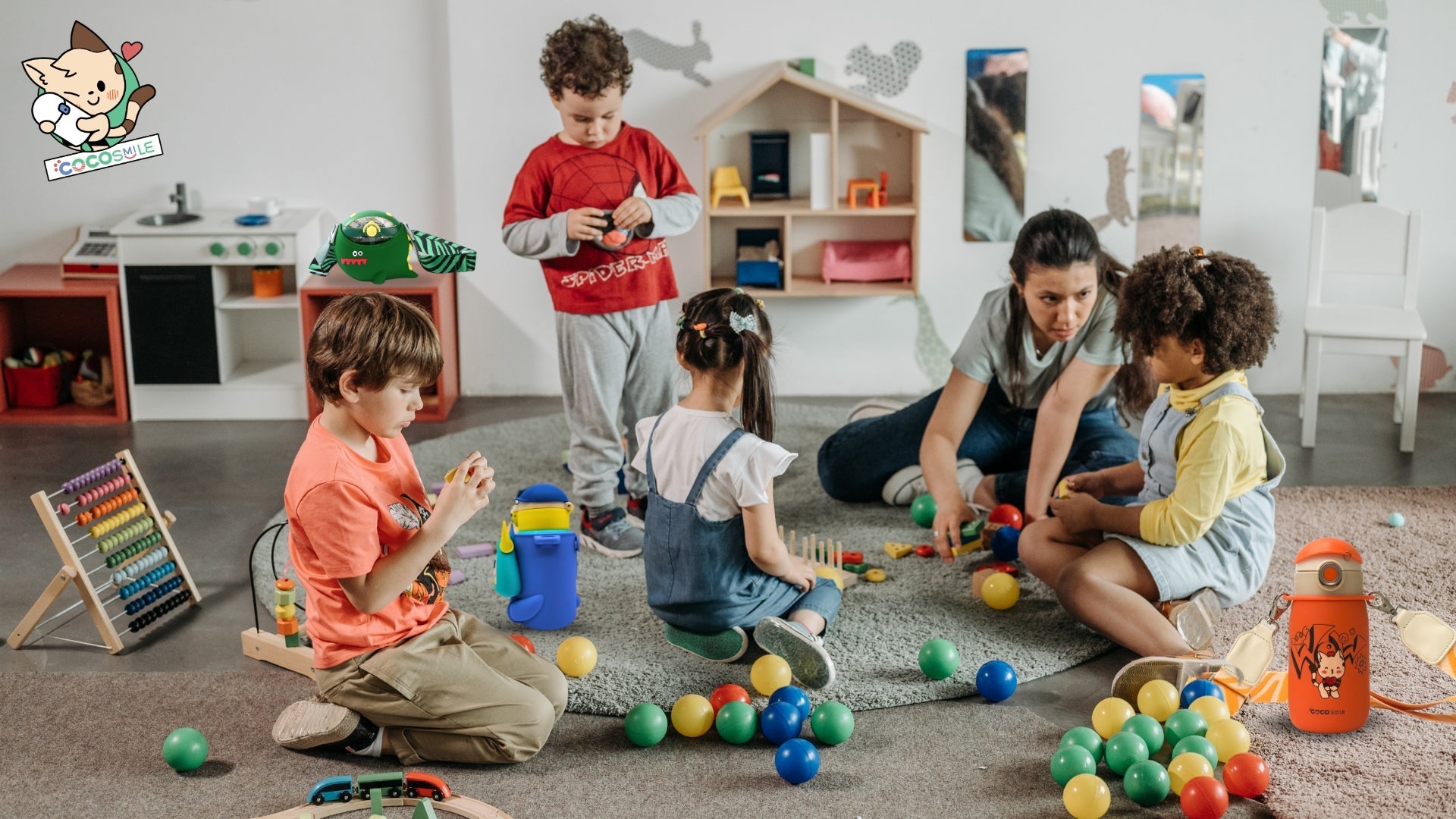Did you know that aging can make you less likely to feel thirsty—even when your body desperately needs water? This natural decline in thirst perception, combined with physiological changes and health conditions common in older adults, makes proper hydration a critical—but often overlooked—part of healthy aging.
According to research published in the National Library of Medicine, older adults are at a higher risk of dehydration due to diminished kidney function, lower water reserves in the body, and a reduced sense of thirst. Dehydration doesn’t just cause discomfort—it can lead to confusion, urinary tract infections, constipation, and even hospitalizations. Yet, many older adults still underestimate the importance of drinking enough water.
In this article, we’ll explore:
-
Why aging affects hydration levels
-
The key benefits of staying hydrated in older adulthood
-
Signs and risks of dehydration
-
How much water seniors really need
-
Simple, practical tips to help older adults stay hydrated every day
1. Understanding Hydration and Aging
As we grow older, several physiological changes affect how our bodies manage hydration. Studies show that adults over 65 are at a higher risk of dehydration than younger adults. This is because our bodies become less efficient at conserving water, and our sense of thirst tends to diminish.
Key Factors Affecting Hydration in Older Adults:
-
Decline in Thirst Sensation: Many seniors don’t feel thirsty until they’re already mildly dehydrated, which makes it easy to overlook the need to drink water regularly.
-
Reduced Kidney Function: Our kidneys become less efficient with age, making it harder to retain water and causing more fluid loss.
-
Changes in Body Composition: Older adults lose lean muscle mass, which holds more water than fat. As a result, they have less water in their bodies to begin with.
2. Why Hydration is Essential for Older Adults
Hydration isn't just about quenching your thirst; it’s about supporting vital bodily functions that keep us healthy. For older adults, staying hydrated helps prevent complications and supports overall well-being.
Here’s how hydration makes a real difference:
-
Supports Cognitive Function: Dehydration can cause confusion, memory issues, and trouble concentrating. Staying hydrated helps maintain mental clarity and supports brain health.
-
Maintains Body Temperature: As we age, our bodies become less effective at regulating temperature. Proper hydration helps the body cool down through sweating and circulation, reducing the risk of heat exhaustion.
-
Aids Digestion: Water is essential for digestion and nutrient absorption. It helps prevent constipation, which is a common problem for older adults.
-
Lubricates Joints and Protects Organs: Hydration keeps the joints lubricated and reduces the risk of conditions like arthritis. It also protects vital organs like the kidneys.
-
Boosts Energy Levels: Even mild dehydration can cause fatigue. Drinking enough water helps keep energy levels up and prevents sluggishness.
-
Prevents UTIs: Seniors are more prone to urinary tract infections, but staying hydrated helps flush bacteria from the urinary tract and reduces the risk of infections.
-
Supports Chronic Conditions: Hydration helps manage conditions like diabetes and hypertension by supporting kidney function and maintaining healthy blood pressure.
-
Promotes Skin Health: Hydration helps keep skin smooth and elastic, which can help combat the dry skin and wrinkles that often accompany aging.
3. Common Signs and Risks of Dehydration in Seniors
Dehydration can often go unnoticed in older adults, as the symptoms are sometimes subtle or mistaken for age-related issues. Recognizing the signs early is crucial to preventing more severe complications.
Signs of Dehydration:
-
Mild Dehydration: Dry mouth, fatigue, and dark-colored urine.
-
Severe Dehydration: Confusion, dizziness, and even organ damage.
Health Risks of Dehydration:
-
Cognitive Decline: Dehydration can cause confusion, memory problems, and difficulty concentrating, which may be mistaken for dementia.
-
Constipation: Insufficient water intake leads to constipation, causing discomfort and potential health issues.
-
Dizziness and Falls: Dehydration can cause dizziness, increasing the risk of falls. Falls are a leading cause of injury among seniors.
-
Kidney Issues and UTIs: Chronic dehydration can lead to kidney problems and urinary tract infections, both of which are common in older adults.
4. How Much Water Do Older Adults Need?
The amount of water an older adult needs varies based on factors like activity level, climate, and overall health. A general guideline is to drink at least 8 cups (about 2 liters) of water per day. However, some seniors may need more depending on their individual circumstances.
Factors That Influence Hydration Needs:
-
Medications: Many medications, such as diuretics, can increase fluid loss and require additional hydration.
-
Climate: Hot, humid weather increases the need for fluids as the body sweats more to regulate temperature.
-
Activity Level: Physical activity increases fluid loss, so active seniors need to drink more water.
-
Health Conditions: Seniors with chronic conditions, such as diabetes or hypertension, may need to adjust their fluid intake to manage their health.
5. Tips to Stay Hydrated Throughout the Day
It can be tough for older adults to stay on top of hydration, but there are simple strategies to help make drinking water a regular habit:
-
Keep Water Visible and Accessible: Having a water bottle or glass within easy reach makes it easier to remember to drink. Try using a reusable water bottle, like a CocoSmile Cup, which is both practical and eco-friendly.
-
Set Reminders or Use Apps: Setting reminders or using hydration apps can help seniors track their water intake and stay on schedule.
-
Eat Hydrating Foods: Fruits and vegetables like cucumbers, watermelon, and strawberries, as well as soups and smoothies, are great sources of water.
-
Flavor Your Water: If plain water doesn’t appeal, try adding natural flavors like lemon, lime, or fresh herbs to make it more enjoyable.
-
Drink with Meals: Make it a habit to drink a glass of water with every meal and when taking medications.
-
Alternative Fluids: Milk, herbal teas, and low-sugar drinks can also contribute to daily hydration.
6. Special Considerations for Older Adults
Seniors may face unique hydration challenges due to health conditions, medications, and environmental factors. Here’s what to keep in mind:
-
When to Consult a Doctor: If symptoms like persistent confusion, dry skin, or reduced urine output persist, it may be time to consult a healthcare provider.
-
Hydration During Illness or Heat Waves: Illnesses like fever or vomiting can cause dehydration, as can heatwaves. In these cases, encourage small sips of water or electrolyte solutions.
-
Hydration for Dementia or Mobility Issues: Seniors with dementia or mobility issues may forget to drink or have difficulty accessing water. Caregivers should encourage regular hydration and provide easy-to-use cups like CocoSmile Cups.
Conclusion
Hydration plays a key role in maintaining health, especially as we age. Since our bodies don’t signal thirst as effectively as they once did, it’s important to be proactive about drinking enough water. Staying hydrated supports brain function, digestion, joint health, and energy levels while reducing the risk of serious issues like UTIs and kidney problems. Simple steps like keeping water nearby, setting reminders, and consuming hydrating foods can make a big difference. For seniors and caregivers alike, maintaining proper hydration is an easy and effective way to promote better health and quality of life.
Stay hydrated today—your future self will thank you!
FAQs
Why is hydration more important as we age?
As we age, the body’s ability to conserve water and detect thirst diminishes, making older adults more susceptible to dehydration. Proper hydration supports cognitive function, joint health, digestion, and heart health, among other crucial bodily functions. Staying hydrated helps prevent confusion, fatigue, and other complications associated with aging.
How much water should older adults drink each day?
The general recommendation is to drink at least 8 cups (about 2 liters) of water per day. However, individual hydration needs may vary depending on factors like activity level, climate, health conditions, and medications. It’s important to adjust fluid intake to meet your body’s needs.
What are the signs of dehydration in older adults?
Signs of dehydration in seniors can include dry mouth, fatigue, dizziness, dark urine, confusion, and constipation. In severe cases, dehydration may lead to more serious symptoms such as low blood pressure, rapid heartbeat, and organ damage. Recognizing these symptoms early can prevent complications.





